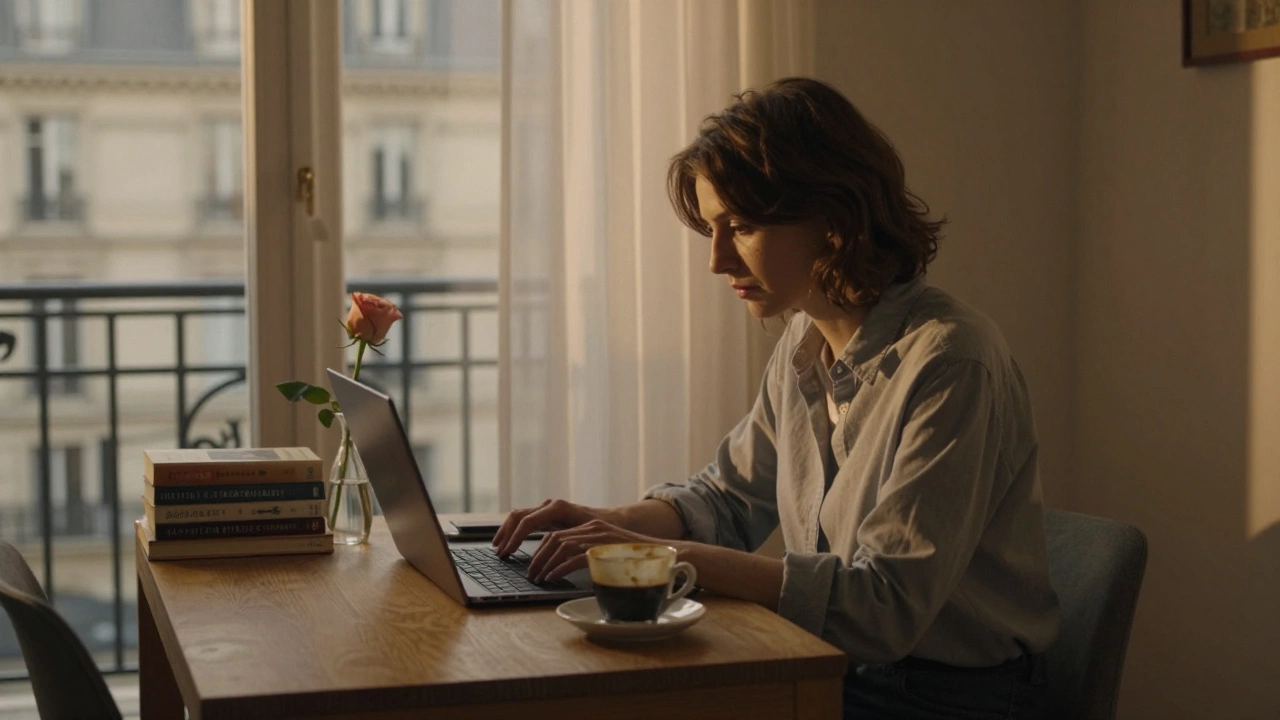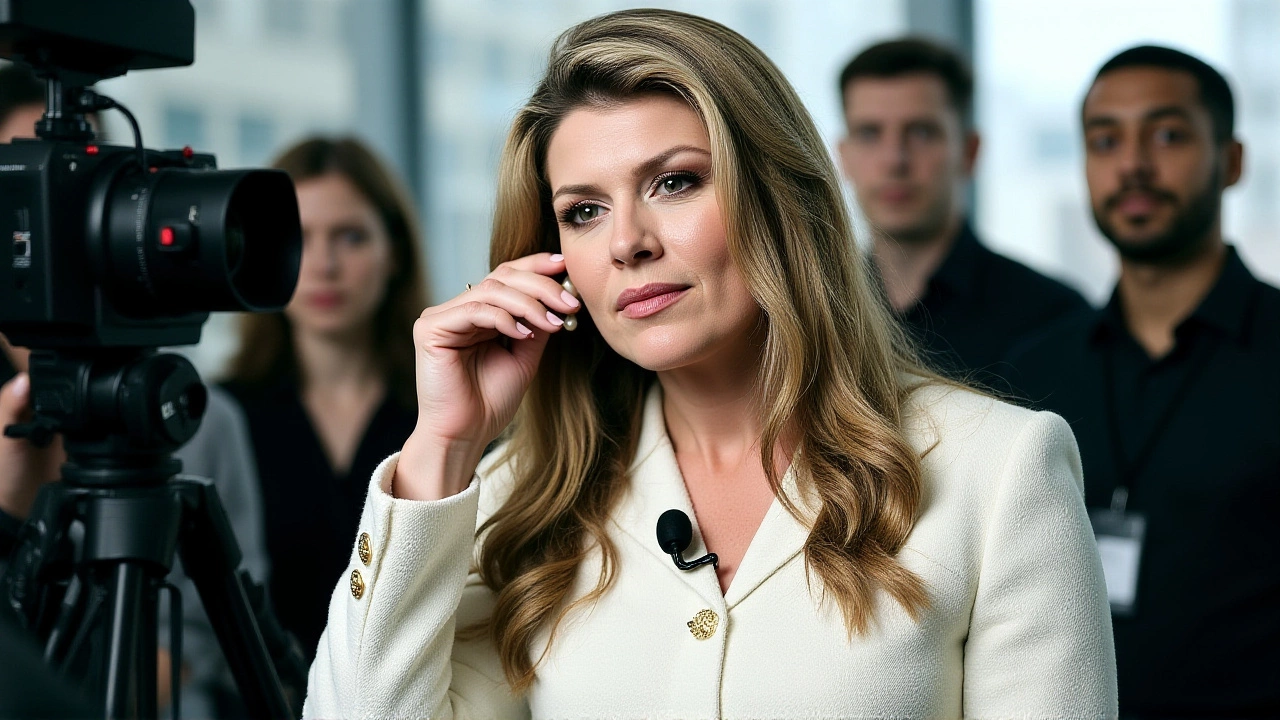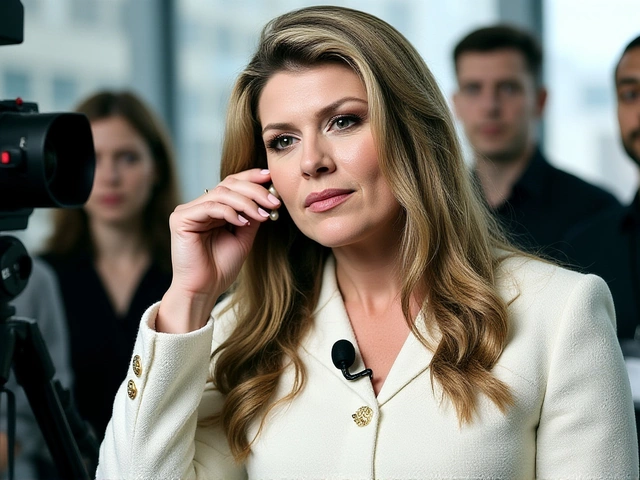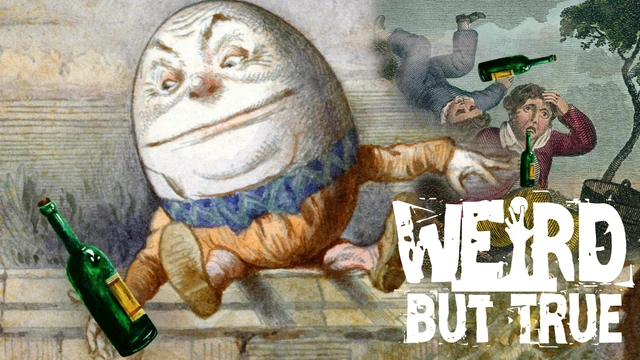Frank Owen's Poetry Haven
Paris Escort - Understanding the Real Story Behind Escort Services in the City of Light

Paris escort services are often misunderstood. Behind the stereotypes are real women navigating independence, culture, and personal choice in one of the world's most complex cities. This is their story.
Why Finding a Place to Live Is Hard for Sex Workers - And What Makes It Worse

Finding a place to live is incredibly hard for sex workers due to stigma, legal risks, and systemic exclusion. In Dubai, even the perception of sex work can lead to eviction, blacklisting, and homelessness.
David Harbour Unrecognizable in Fat Suit for Courteney Cox’s 'Evil Genius' Based on Bizarre 2003 Pizza Bomber Case

David Harbour transforms into Brian Wells in Courteney Cox’s 'Evil Genius,' a film based on the 2003 pizza bomber case that left the FBI stunned. The true-crime drama explores whether Wells was victim or villain.
Judge Dismisses Comey and James Cases After Ruling Trump Appointee Had No Legal Authority

A federal judge dismissed criminal cases against James Comey and Letitia James after ruling that interim U.S. Attorney Lindsey Halligan, a Trump ally with no prosecutorial experience, lacked constitutional authority to bring the charges. The administration plans to appeal.
Jeremiyah Love scores 3 TDs as No. 9 Notre Dame routs Syracuse 70-7

Jeremiyah Love scored three touchdowns as No. 9 Notre Dame routed Syracuse 70-7 on November 22, 2025, in a historic blowout that extended the Fighting Irish’s winning streak to nine games and left Syracuse at 3-8.
Bulls vs. Heat: Giddey, Adebayo Clash in NBA Cup Showdown at United Center

The Chicago Bulls host the Miami Heat in an NBA Cup clash at United Center, with Josh Giddey and Bam Adebayo leading their teams. Bulls are 1-point favorites after a dramatic buzzer-beater win, but public betting favors Miami despite their road struggles.
Suns rout Blazers 127-110 as Booker and Gillespie spark second-half surge

The Phoenix Suns defeated the Portland Trail Blazers 127-110 on November 18, 2025, as Devin Booker and Collin Gillespie led a second-half surge. Portland lost their third straight game, missing key players and struggling defensively.
Lakers Edge Timberwolves 116-115 as Reaves Hits Buzzer-Beater Amid Injury Crisis

Austin Reaves sank a buzzer-beater to lead the Lakers past the Timberwolves 116-115 on October 29, 2025, as Luka Doncic, LeBron James, and Marcus Smart sat out with injuries, forcing Reaves into a starring role.
Dennis Quaid’s Viewpoint Highlights DRAXXON’s Life‑Saving Drone Tech

DRAXXON's drone solutions were showcased on Dennis Quaid's Viewpoint, highlighting faster, safer search‑and‑rescue operations and the tech's growing impact on public safety.
Dubai Shines on World Poetry Day as Poet Fatima Al-Mansouri Leads Global Celebration
Categories
RECENT POSTS
Dubai Shines on World Poetry Day as Poet Fatima Al-Mansouri Leads Global Celebration
Dubai's World Poetry Day spotlighted Emirati poet Fatima Al‑Mansouri, launching a UNESCO‑backed "Poetry Without Borders" initiative to fund global translation projects.
Judge Dismisses Comey and James Cases After Ruling Trump Appointee Had No Legal Authority
A federal judge dismissed criminal cases against James Comey and Letitia James after ruling that interim U.S. Attorney Lindsey Halligan, a Trump ally with no prosecutorial experience, lacked constitutional authority to bring the charges. The administration plans to appeal.
What's the true dark history behind famous nursery rhymes?
As I delved into the true dark history behind famous nursery rhymes, I was surprised to discover sinister origins behind seemingly innocent songs. For instance, "Ring Around the Rosie" is believed to be about the Great Plague, while "Mary, Mary, Quite Contrary" may actually refer to the ruthless Queen Mary I of England. Even the beloved "Humpty Dumpty" has connections to a devastating historical event – the English Civil War. As I continued my research, it became clear that these nursery rhymes were more about preserving history and cautionary tales than simply entertaining children. I can't help but wonder what other dark secrets are hidden within the verses we've all grown up with.
Paris Escort - Understanding the Real Story Behind Escort Services in the City of Light
Paris escort services are often misunderstood. Behind the stereotypes are real women navigating independence, culture, and personal choice in one of the world's most complex cities. This is their story.
Lakers Edge Timberwolves 116-115 as Reaves Hits Buzzer-Beater Amid Injury Crisis
Austin Reaves sank a buzzer-beater to lead the Lakers past the Timberwolves 116-115 on October 29, 2025, as Luka Doncic, LeBron James, and Marcus Smart sat out with injuries, forcing Reaves into a starring role.





